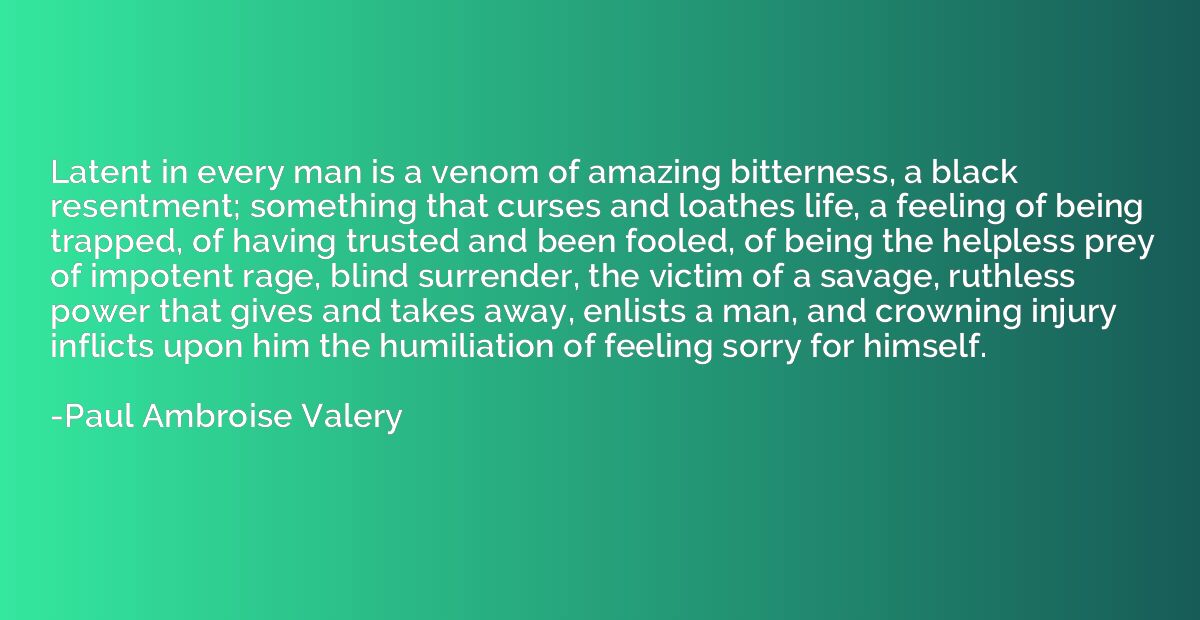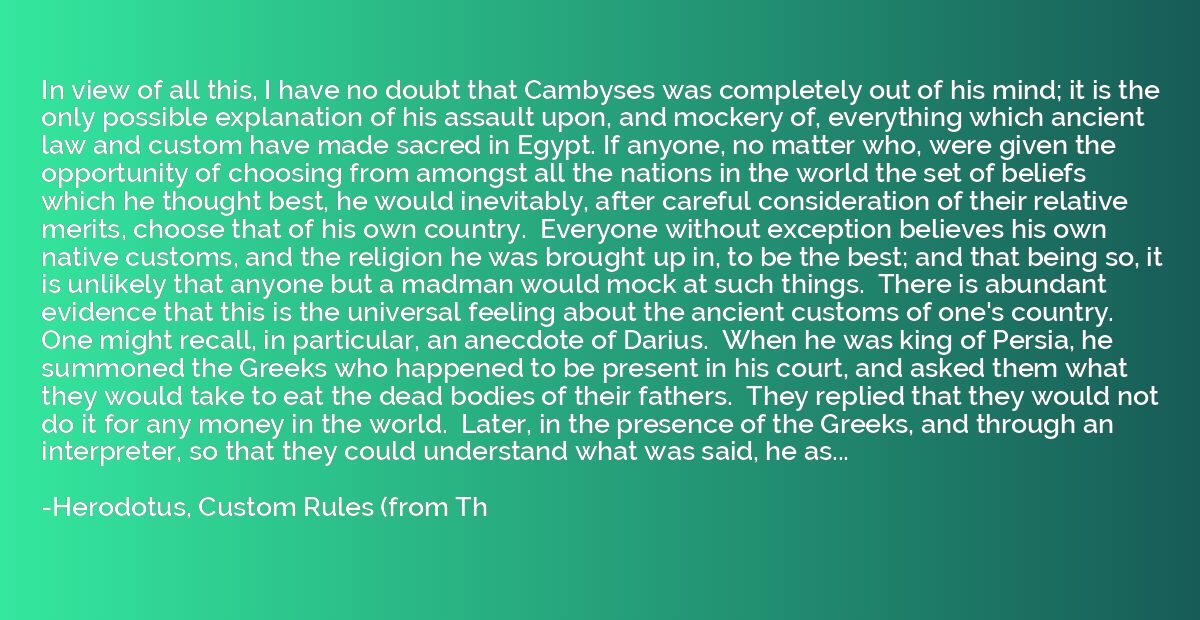Quote by Paul Ambroise Valery
Latent in every man is a venom of amazing bitterness, a black resentment; something that curses and loathes life, a feeling of being trapped, of having trusted and been fooled, of being the helpless prey of impotent rage, blind surrender, the victim of a savage, ruthless power that gives and takes away, enlists a man, and crowning injury inflicts upon him the humiliation of feeling sorry for himself.

Summary
This quote suggests that within every individual lies a hidden and deeply bitter venom, a strong sense of resentment towards life. It portrays a feeling of being trapped and deceived, having believed and ultimately been betrayed. It describes an overwhelming helplessness and frustration, as one becomes a victim of uncontrollable anger and surrender. The quote argues that people are subject to a merciless power that manipulates and victimizes them, causing deep humiliation and self-pity.














